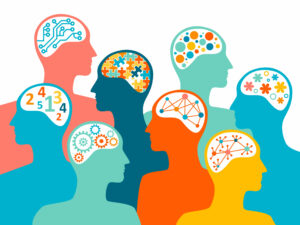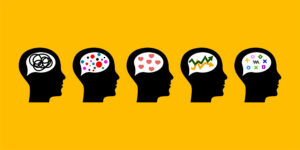Are you and your partner facing unique challenges in your relationship due to neurodiversity? Navigating the complexities of a neurodiverse couple can be both rewarding and challenging. In this article, we explore the world of neurodiverse couples therapy and how it can help you build a strong and thriving relationship. Whether you’re seeking neurodiverse couples therapy near you or simply interested in learning more, this article provides valuable insights and guidance.
Contents
Understanding Neurodiversity

Understanding Neurodiversity: Neurodiversity encompasses a broad spectrum of conditions, including autism, ADHD, dyslexia, and others. Each condition brings with it distinctive strengths and challenges, affecting individuals’ cognitive, social, and emotional functioning. Neurodiverse couples consist of partners who have different neurological profiles, creating a unique dynamic in their relationship.
Principles of Neurodiverse Couples Therapy
- Embracing neurodiversity: The therapist recognizes and appreciates the diverse neurological profiles of each partner, avoiding pathologizing or attempting to “normalize” differences. The focus shifts toward accepting and understanding each partner’s unique strengths, challenges, and ways of processing information.
- Building empathy and understanding: The therapy process revolves around developing empathy and understanding between partners. Both individuals are encouraged to explore and express their thoughts, emotions, and experiences, creating a safe space for open communication.
- Communication enhancement: Neurodiverse couples often face communication challenges due to different processing styles, sensory sensitivities, or social difficulties. Therapists assist couples in developing effective communication strategies tailored to their specific needs, such as using visual supports, creating structured routines, or employing assistive technologies.
- Collaborative problem-solving: By fostering a collaborative problem-solving approach, therapists encourage partners to work together to find mutually beneficial solutions. This includes finding compromises, establishing clear expectations, and respecting each other’s boundaries.
Challenges Faced by Neurodiverse Couples
Neurodiverse couples encounter specific challenges that may impact their relationship dynamics. It’s crucial to understand these challenges to address them effectively in therapy.
Communication Differences
Communication styles can significantly vary between neurodiverse individuals and their partners. Neurodivergent individuals may struggle with social cues, nonverbal communication, or understanding abstract language. These differences can lead to misunderstandings and miscommunication, affecting relationship harmony.
Sensory Sensitivities
Many neurodivergent individuals experience sensory sensitivities, where certain sounds, textures, or environments can be overwhelming. This can affect their comfort levels within the relationship and may require adaptations to create a sensory-friendly environment.
Emotional Regulation
Managing emotions can be challenging for neurodiverse individuals, leading to difficulties in expressing or understanding their own and their partner’s emotions. This can strain emotional intimacy and require supportive strategies to regulate emotions effectively.
Social Interaction
Social interactions can be demanding for neurodivergent individuals, affecting their ability to engage in social activities as a couple. Differences in social expectations and preferences may require adjustments and accommodations to ensure both partners feel included and understood.
Benefits of Neurodiverse Couples Therapy

Neurodiverse couples therapy offers a range of benefits that can positively impact the relationship and the overall well-being of both partners.
Improved Communication
Therapy provides a safe space to address communication challenges and develop effective strategies tailored to the couple’s unique needs. Improved communication enhances understanding, reduces conflict, and strengthens emotional connection.
Enhancing Emotional Connection
Neurodiverse couples therapy focuses on nurturing emotional connection and intimacy. Therapists help couples explore their emotions, express vulnerabilities, and deepen their bond through shared experiences.
Building Empathy and Understanding
Therapy cultivates empathy and understanding between partners. It encourages perspective-taking, exploring each other’s viewpoints, and embracing the strengths and differences of both partners.
Navigating Sensory Differences
Neurodiverse couples therapy assists in navigating sensory differences within the relationship. Therapists guide in creating a sensory-friendly environment and finding compromises that respect both partners’ sensory needs.
Finding Neurodiverse Couples Therapy Near You
Finding the right neurodiverse couples therapy near you can greatly benefit your relationship. Here are some steps you can take to locate a therapist experienced in working with neurodiverse couples:
- Online directories: Utilize online directories specifically designed to help individuals find therapists. Websites such as Psychology Today, GoodTherapy, and TherapyTribe allow you to search for therapists based on various criteria, including specialization in neurodiverse couples therapy. You can filter your search by location, insurance coverage, and specific conditions or concerns.
- Referrals: Seek recommendations from your primary care physician, mental health professionals, or local support groups. They may be familiar with therapists who specialize in neurodiverse couples therapy or have experience working with individuals on the autism spectrum or other neurodivergent conditions.
- Autism organizations: Reach out to autism-focused organizations. These organizations often maintain directories of therapists and professionals who specialize in working with neurodiverse individuals and couples.
- Research universities or clinics: Contact local universities or clinics that offer psychology or counseling programs. These institutions may have counseling centers or clinics with therapists who specialize in working with neurodiverse couples. Additionally, they may be conducting research in this area and have valuable resources or recommendations.
- Support groups and online communities: Engage with local support groups or online communities for neurodiverse individuals and their partners. These groups may have members who can provide recommendations or share their personal experiences with therapy.
The Role of a Neurodiverse Couples Therapist

A neurodiverse couples therapist plays a crucial role in facilitating understanding, communication, and connection between partners with different neurological profiles. Here are some key aspects of the therapist’s role in neurodiverse couples therapy:
- Creating a safe and inclusive space: The therapist establishes a safe and non-judgmental environment where both partners feel comfortable expressing themselves. They promote an atmosphere of acceptance and respect for each partner’s unique neurodivergent traits, experiences, and challenges.
- Embracing neurodiversity: A neurodiverse couples therapist recognizes and appreciates the diverse neurological profiles of each partner. They understand that neurodivergent traits are not inherently negative or problematic, but rather different ways of perceiving and processing the world. The therapist refrains from pathologizing or trying to “normalize” these differences, focusing instead on understanding and embracing neurodiversity.
- Psychoeducation and normalization: The therapist provides psychoeducation to help partners understand each other’s neurological profiles, strengths, challenges, and the impact of their respective conditions on their relationship. They explain the characteristics, sensory sensitivities, communication styles, and social dynamics related to neurodivergent conditions, helping couples develop empathy and adjust their expectations accordingly.
- Facilitating effective communication: Communication challenges are common in neurodiverse couples. The therapist assists partners in improving their communication skills and finding strategies that work for them. They may introduce visual supports, structured routines, or assistive technologies to enhance communication. The therapist also encourages active listening, teaches effective ways to express emotions, and helps partners navigate any misinterpretations or misunderstandings.
- Teaching relationship skills: Neurodiverse couples therapists guide the development and maintenance of healthy relationship skills. They may focus on areas such as conflict resolution, compromise, setting boundaries, and collaborative problem-solving. By teaching relationship skills tailored to the specific needs of the couple, the therapist empowers partners to work together effectively and strengthen their bond.
Techniques Used in Neurodiverse Couples Therapy
Neurodiverse couples therapy employs a variety of techniques to address the unique dynamics and challenges faced by couples with different neurological profiles. These techniques are tailored to the specific needs and goals of the couple. Here are some commonly used techniques in neurodiverse couples therapy:
- Psychoeducation: The therapist provides information about neurodivergent conditions, their characteristics, and how they may impact communication, social interactions, and emotional regulation. Psychoeducation helps partners understand each other’s experiences, reduces misunderstandings, and fosters empathy.
- Structured communication: Therapists help couples develop structured communication strategies that accommodate the different processing styles of neurodiverse individuals. This may involve using visual supports (e.g., visual schedules, social stories), creating predictable routines, or implementing assistive technologies (e.g., communication apps, visual aids) to facilitate effective communication and reduce misunderstandings.
- Active listening and validation: Therapists teach partners active listening skills, which involve giving their full attention, paraphrasing, and reflecting on what the other person has said. This technique promotes understanding and validation, allowing partners to feel heard and valued.
- Perspective-taking exercises: Neurodiverse couples often have different perspectives and ways of perceiving the world. Perspective-taking exercises help partners gain insight into each other’s experiences and develop empathy. These exercises may involve role-playing, imagining oneself in the other person’s shoes, or engaging in structured conversations to explore different viewpoints.
- Emotional regulation techniques: Neurodiverse individuals may struggle with emotional regulation. Therapists help couples identify emotional triggers, develop coping mechanisms, and practice self-regulation techniques. This may include deep breathing exercises, mindfulness practices, or sensory-based strategies to manage emotional arousal.
- Sensory integration: Sensory sensitivities are common among neurodiverse individuals. Therapists work with couples to identify triggers and develop strategies for managing sensory overload. This may involve creating sensory-friendly environments, implementing sensory breaks, or using sensory tools (e.g., weighted blankets, and fidget toys) to support self-regulation.
Conclusion
Neurodiverse couples face unique challenges, but with the right support and guidance, they can create a loving and fulfilling relationship. Neurodiverse couples therapy provides the tools and strategies necessary to navigate these challenges successfully. By embracing neurodiversity, improving communication, and fostering empathy, couples can build a strong and resilient bond.
Addressing and resolving a couple of issues is essential for a strong and lasting partnership. If you have any queries regarding Online Couple Counseling experienced therapists at CoupleMantra can help. Book a trial couple therapy session


